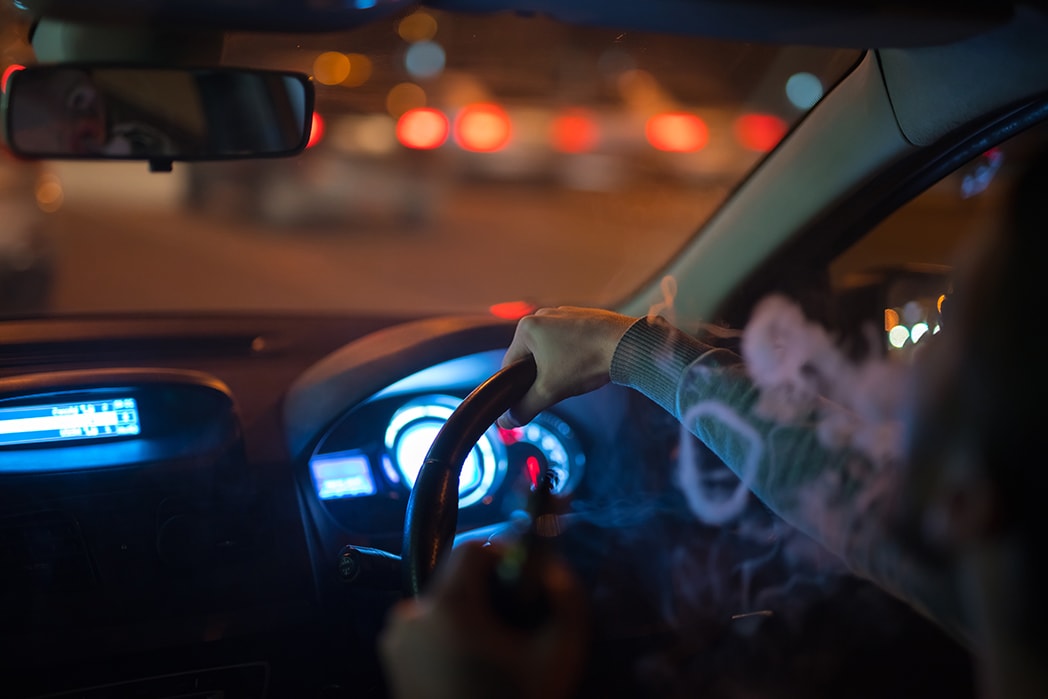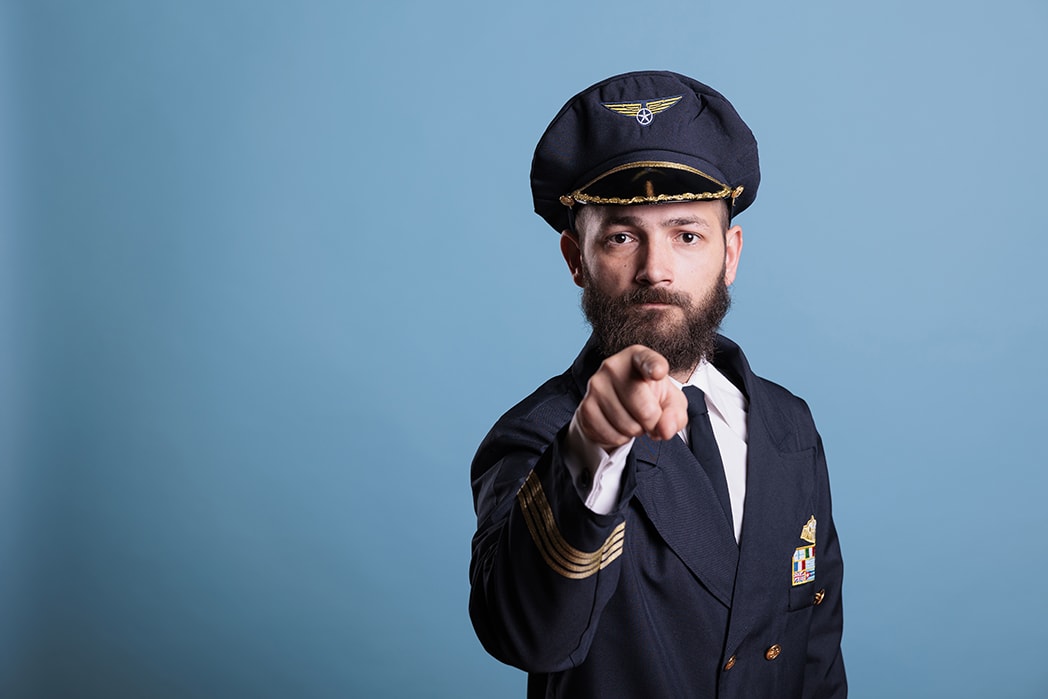Can You Get a Pilot's License with a DUI? Facts Explained
Jun 19, 2025
Can you get a pilot’s license with a DUI? Yes, but you’ll face more hurdles. This article explains what you need to know and how to meet the requirements set by the Federal Aviation Administration (FAA).
Key Takeaways
-
A DUI will make getting or renewing a pilot’s license much harder due to the FAA’s strict scrutiny of applicants.
-
Pilots must report any DUI arrests or convictions to the FAA within 60 days or face severe consequences.
-
A DUI affects different types of pilot licenses differently, so you’ll need to show rehabilitation and fitness to fly to get approved.
Understanding the Impact of a DUI on Pilot Licensing
A DUI can make the process of getting or renewing a pilot’s license a real challenge. The FAA takes these offenses very seriously and will be looking for judgment and responsibility issues as well as substance abuse problems.
This means more scrutiny and more documentation and a longer and more complicated process to become a licensed pilot.
A DUI can cost a licensed pilot their job and livelihood so you need to navigate this process with the right legal advice. Here are the key steps:
-
Disclosure during medical certification
-
Getting medical certificates
-
The role of the Aviation Medical Examiner
Disclosure Requirements During Medical Certification
One of the first obstacles pilots face after a DUI is the medical certification process. The FAA requires any alcohol related driving offenses or an alcohol related arrest to be reported on medical certificate applications regardless of when they occurred.
So even a single DUI arrest from years ago must be disclosed. Pilots must also report any administrative actions such as license suspensions from DUIs.
Pilots must provide full documentation such as court records, police reports and evidence of rehabilitation. An aviation attorney can help clarify the reporting requirements and ensure all necessary information is disclosed.
Medical Certification Challenges with DUI Convictions
Getting a medical certificate after a DUI is tough. The FAA requires a lot of documentation to prove rehabilitation including participation in treatment programs and ongoing sobriety monitoring. This is to ensure pilots are fit to fly and pose no risk to aviation safety factors that are thoroughly assessed during an aviation medical examination.
For those with multiple DUIs the path gets even steeper, you need to show clear evidence of sustained rehabilitation efforts. Pilots will be scrutinized more during the application process and any hint of substance dependence can cause more complications especially with a DWI conviction.
The Role of the Aviation Medical Examiner
The Aviation Medical Examiner (AME) is a key player in the medical certification process. Designated by the FAA, AMEs evaluate pilots with DUI’s including a chemical test. They look at the timing of the incident and the pilot’s blood alcohol level at the time of the offense.
AMEs make sure pilots meet the FAA’s strict standards by looking at medical history, current health status and potential substance use risks. The FAA considers their evaluation critical in determining a pilot’s ability to fly an aircraft.
Reporting DUI Arrests and Convictions to the FAA

Pilots must report any DUI arrests and convictions to the FAA, a requirement that shows the agency’s commitment to aviation safety. This must be done in writing within 60 days of the alcohol related motor vehicle action. Failure to comply with these FAA requirements can result in the suspension or revocation of the pilot’s certificate.
Reporting these incidents keeps the aviation community transparent and honest. Pilots need to know the time limits and the consequences of not reporting.
FAA Reporting Time Limits
When it comes to DUI’s the FAA has a time limit. Pilots must report these within 60 days of the effective date of the driver’s license suspension. This applies even if there is no conviction.
Not reporting within this time frame can have serious consequences and can affect your pilot’s license and ability to fly. Pilots need to stay informed of the FAA reporting requirements to stay compliant and avoid headaches.
Consequences of Non-Reporting
The consequences of not reporting a DUI conviction to the FAA are severe. Non-reporting can result in the suspension or revocation of your pilot’s certificate. Not disclosing a DUI during the medical certification process can result in the denial or revocation of the medical certification.
Trying to hide or omit these incidents can make a pilot’s situation worse. If the FAA sees a pattern of substance abuse they can delay and add additional requirements to get an aviation medical certificate.
DUI and Its Effect on Different Types of Pilot Licenses

The impact of a DUI on pilot licensing varies by license type. You can become a pilot with a DUI on your record but it’s not easy. Each type of pilot license has its own considerations and obstacles to overcome, including the ability to obtain a class medical certificate, which is essential for demonstrating fitness to fly based on the level of certification you’re seeking.
Understanding how a DUI affects FAA pilot licenses is key to navigating the process successfully.
Pilots to be must understand these. Whether you’re going for a private pilot’s license, commercial pilot license, flight instructor certification or pilot’s certificate, the journey is complex and requires planning. And getting a private pilot’s certificate is a step in this journey.
Obtaining a Private Pilot License with a DUI
Getting a private pilot’s license with a DUI is possible but harder. You must show you’re fit to fly with a DUI on your record, often facing additional legal and medical hurdles.
Understanding how to get your pilot license after a DUI begins with learning the FAA requirements and showing evidence of rehabilitation.
Pilots to must be prepared for a more thorough application process, including a deep dive into your personal and medical history. Showing rehabilitation and commitment to aviation safety is key in this case.
Commercial Pilot License and DUI History
A DUI history can be a big problem for a commercial pilot license. Airlines and the FAA want proof that alcohol use doesn’t pose a risk to aviation safety. Multiple DUIs make it much harder to get this type of license.
Some airlines will hire pilots with previous DUIs but time since the conviction, number of times and evidence of rehabilitation are big factors. Pilots with DUIs may also have issues with international travel especially into Canada.
Flight Instructor Certification and DUI
DUIs can also prevent a pilot from becoming a certified flight instructor. The FAA requires flight instructors to meet high standards of conduct and responsibility and a DUI can raise doubt on an applicant’s suitability.
Aspiring flight instructors must show rehabilitation and commitment to aviation safety often requiring additional documentation and evaluations including a flight physical to prove they are fit for the job.
International Travel and Licensing Complications Due to DUI

A DUI can cause big problems for pilots who travel internationally. Different countries have different rules regarding alcohol related offenses and it affects both licensing and entry permissions. Pilots who want to fly globally need to understand these international nuances especially when it comes to driving under the influence and alcohol related incidents.
This section covers specific challenges including Canadian entry restrictions and navigating international licensing to enter Canada.
Canadian Entry Restrictions for Pilots with DUIs
Canada has strict entry restrictions for individuals with DUI convictions and often results in criminal convictions and inadmissibility. Unlike previous rules, individuals with DUI convictions are no longer automatically rehabilitated after 10 years.
Pilots can apply for Criminal Rehabilitation 5 years after completing all sentencing and probation requirements. This is a permanent solution for Canadian entry and is required for pilots who plan to fly in Canada.
Navigating International Licensing Issues
International licensing issues due to a DUI can be tricky. Different countries view alcohol related offenses including drunk driving differently and it impacts the license process. Pilots need to research the specific regulations in the countries they want to fly in to understand the challenges.
Seeking legal or professional advice can help pilots navigate these complexities and stay compliant with federal aviation regulations.
Legal and Professional Support for Pilots with DUI Convictions

Legal and professional help is key for pilots with a DUI. Specialized attorneys can navigate the aviation and DUI regulations and make a big difference in a pilot’s situation. Immediate legal advice is crucial to protect a pilot’s rights and stay compliant with the FAA.
This section will guide you on how to find an experienced aviation attorney and use professional help for medical certification.
Finding Experienced Aviation Attorneys
You need attorneys with experience in both aviation law and DUI defense. Attorneys who are pilots can bring unique insights to the table.
Choosing the right lawyer matters when navigating the regulatory maze and keeping your pilot’s license. This section has tips on finding qualified aviation attorneys.
Utilizing Professional Guidance for Medical Certification
Professional help is key to navigating the FAA medical certification process after a DUI. Aviation attorneys who know FAA regulations and DUI laws can help, making medical certification easier and compliant.
This section will show you the benefits of using professional help for medical certification.
Summary
Summarize key points: the impact of a DUI on obtaining a pilot’s license, the importance of disclosure, challenges in medical certification, reporting requirements, and the need for legal and professional support. End with an inspiring phrase.
